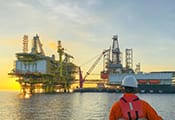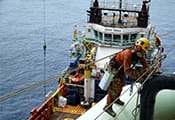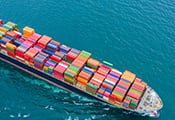Marine Insurance Premium
Insurance policies are designed to mitigate risk in case of an unprecedented loss. In marine insurance, the risk is high as there are multiple factors (man-made and natural) that can cause financial loss to the owner.
Risks in marine open policy may include damage to the expensive vessel, loss or damage to the cargo or goods, environmental damage risk, and liability risk. A premium on a marine cargo insurance policy may increase or decrease based on a few parameters that help them estimate the risks.
Learn more about Marine Insurance
Factors Affecting Marine Insurance Premium
As a trader or shipper, one has to expect frequent changes in the premium amount. The reality is that the premium amount is highly subjective. The risks involved also vary on the change in location, material, vessel and many other factors.
The below key factors are considered for calculating marine insurance premiums:
- Natural risks: Natural disasters like earthquakes, floods, tsunamis, cyclones, etc., can cause massive damage to the goods in transit. However, predicting these perils is not always possible, thus, causing large financial losses. Some parts of the globe are highly prone to such disasters. Transit to such destinations can lead to a high marine insurance premium.
- Ports Facilities: The facilities at the ports also play a significant role. The port at which the cargo is loaded and the one at the destination impacts the premium amount. This is because some ports in developing countries may not provide world-class facilities compared to those in a developed nation.
- Type of vessel: The vessel's quality, fitness and construction play an important role in defining the marine insurance premium. The risk is higher if your goods are placed in an older vessel. Details of the vessel, in terms of the materials used for its construction, its strength and adaptability, age of the vessel, etc., are to be provided to the insurer to get the insurance quote.
- Value and Nature of the Goods: Multiple goods or cargos are shipped out like consumer goods, raw materials, industrial materials and so on. The nature and value of the goods to be transported play a vital role in determining the premium amount.
For example, high-value goods usually have a higher premium. Similarly, goods that include food items or glass (which have a higher chance of getting damaged) also have a high premium. This is because recovering such goods from damage is next to impossible.
Also, cement is one such commodity for which the premium charged is very high. The reason for this is that cement leads to total loss if it gets in contact with water.
- Terms and Conditions of the Policy: The inclusions and exclusions in the policy are other factors that impact its premium. For instance, policies that cover total losses may have a higher premium than those that cover partial losses.
- Loss History: Insurance companies usually include questions regarding previous losses to determine the riskiness of the business. If several claims are filed during the last few years, it can help the insurer calculate the premium amount. Also, the shipper is sometimes expected to show what efforts or steps are taken to ensure that those similar claims would not occur again.
- Risk Management Strategy: In continuation to the above point, the shipper may offer a lower premium if some specific risk management techniques have been adapted or modified. For example, proper packaging, special programs for the prevention of theft, disaster management programs, etc.
Conclusion
For marine insurance premiums, it is never a one-size-fits-all approach. Many other factors determine marine insurance premium amount. The insurance providers use customized calculations to determine premium rates based on the abovementioned risks. Right from guiding how to select the right marine insurance policy to how to pick a hassle-free and quick policy, speedy claims, and everything in between, Policybazaar's expert and dedicated team is at your service round-the-clock.


































 Expert advice made easy
Expert advice made easy


